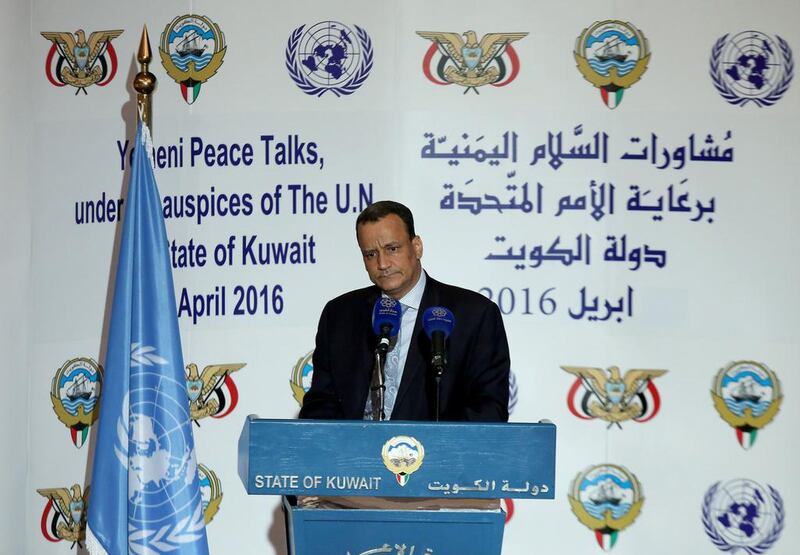Mukalla, Yemen // Yemeni government forces backed by an Arab coalition seized an Al Qaeda training camp in the south-eastern province of Hadramawt on Saturday along with “large amounts” of weapons.
It comes during an offensive launched last month to recapture areas in the south overrun by Al Qaeda and which on Sunday saw loyalist forces overrun the Hadramawt provincial capital Mukalla, which the extremists had occupied for a year.
“The offensive is continuing in Qoton to hunt down Al Qaeda militants,” said Hadramawt governor Major General Ahmed bin Braik, referring to a town north of Mukalla.
Braik said government forces overran an Al Qaeda training camp in the town where they “confiscated large amounts of weapons” and “arrested eight Al Qaeda militants”.
“Mukalla is now a safe city,” Gen Braik added.
A witness there said the situation had returned to normal as pro-government forces deployed across Mukalla with troops from the Arab coalition securing the ports.
Government troops that seized the city were backed by special forces from Saudi Arabia and the UAE, as well as by coalition air strikes, the alliance said.
At least 27 Yemeni soldiers died in the fight to retake Mukalla, military officials and medics said.
Al Qaeda issued a statement on Monday denying they had lost 800 militants as claimed by the coalition.
The statement said the militants withdrew only to spare Mukalla the destruction of fighting.
Residents have spoken of their relief that the city had been freed from the extremists and their brutal rule.
Al Qaeda seized territory in southern Yemen by taking advantage of the war between the internationally recognised government and Houthi rebels from the north who seized the capital Sanaa in 2014.
On Saturday, the warring parties held “productive” face-to-face peace talks on “key issues” in a bid to end the conflict, the United Nations said.
“The talks today were positive and productive... It is an encouraging beginning,” said Yemen’s UN envoy Ismail Ould Cheikh Ahmed, after the first direct talks since the delayed negotiations began on April 21.
“We heard the parties pledge total commitment to (UN Security Council) Resolution 2216 and related decisions, the Gulf initiative and results of Yemeni national dialogue as the basis for a peaceful solution,” he said.
Most of the meetings in talks which began on April 21 have so far been confined to encounters between rival delegations and Mr Ould Cheikh Ahmed.
Key issues to navigate include the withdrawal of armed groups, a handover of heavy weapons, the resumption of a political transition and the release of prisoners.
The new phase of meetings comes after the government and rebel delegations each submitted a framework for a political and security solution to end the 13-month war.
The government delegation said their proposal is based on implementing UN Security Council Resolution 2216, which states that the rebels must withdraw from seized territories and disarm before talks can progress.
Meanwhile, the insurgent-controlled sabanews.net website quoted an unnamed source from the rebel delegation as saying that their proposals include “forming a consensus authority that would oversee [political] transition.”
Both sides said that they were committed to ensuring the success of the talks in Kuwait, which were preceded by a shaky ceasefire that came into effect on April 11.
The main sticking point remains that the rebels want to discuss a political settlement before surrendering arms while the government delegation insists that implementing the UN resolution is a priority.
The government is backed by the Arab coalition, while the Houthis rebels are supported by Iran and allied with the former autocratic ruler Ali Abdullah Saleh who was deposed during the Arab Spring.
*Agence France-Presse





